Iranian Opposition Figure Wins Sydney Peace Prize For Activism
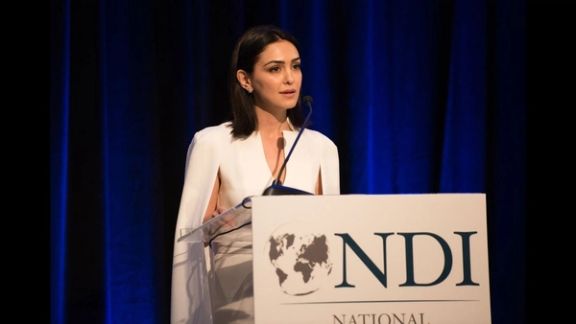
The Sydney Peace Prize for 2023 has been awarded to Iranian-born actress and political activist Nazanin Boniadi for her work advancing human rights in Iran.

The Sydney Peace Prize for 2023 has been awarded to Iranian-born actress and political activist Nazanin Boniadi for her work advancing human rights in Iran.
Her work brought human rights in Iran into sharp focus after the death of Mahsa Amini last year, presenting the case to the UN Security Council, US Senate Human Rights Caucus, British Parliament, and a number of other forums around the world.
The Peace Prize jury said Boniadi was selected from a strong field of nominations “for drawing attention to human rights violations, for lending a powerful voice to support Iranian women and girls and their Woman Life Freedom movement, and for using a high-profile platform to promote freedom and justice in Iran.”
On accepting the Prize, Boniadi said: “Receiving the Sydney Peace Prize is an extraordinary honor. As my compatriots in Iran are subjected to unspeakable assaults on their minds, bodies and souls and risk their lives to speak out against the injustices they experience daily, I can only dedicate this recognition to them.”
The Sydney Peace Prize is Australia’s international prize for peace that recognizes leading global voices that promote peace, justice and nonviolence.
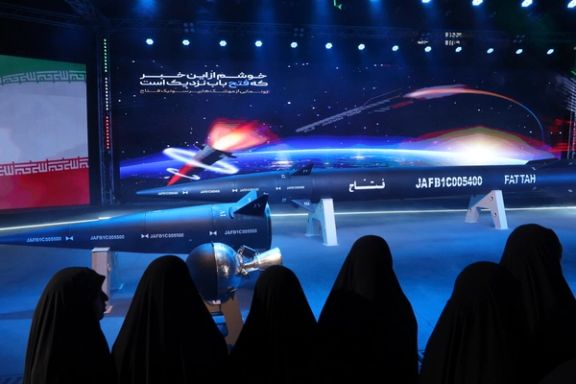
Iran’s foreign ministry claims Tehran's missile activities are conventional and legitimate, after its military unveiled what it says is a hypersonic weapon.
Spokesman Nasser Kanaani on Wednesday ruled out “the interventionist statements of some Western countries regarding the unveiling of the Fattah missile”, stating that the missile activities of the country are “defensive and are completely legitimate based on international laws”.
In a veiled criticism of the regime's enemies, he said: “These countries, which have a long history of violating international obligations in various fields, including nuclear tests, the non-proliferation regime and hosting nuclear missiles, as well as playing a destructive role in regional and international issues, have no right to comment on the legitimate and fully defensive capabilities of Iran.”
Iran unveiled what it described as its first domestically made hypersonic ballistic missile on Tuesday, while available facts about the weapon cast doubt on the claim.
The hypersonic missile allegedly has a range of 1,400 kilometers, can breach and overcome all anti-missile shields, and hits speeds of Mach 13-15, which means about 13 to 15 times faster than the speed of sound -- known as Mach 1.
Washington, for its part, did not directly comment on the missile, but National Security Council Strategic Communications Coordinator John Kirby said Washington “has been very … firm on pushing back on Iran’s destabilizing activities in the region, to include the development of an improving ballistic missile program”.
Israeli Defense Minister Yoav Gallant brushed aside Iranian claims that it had developed a new hypersonic missile Tuesday, saying Israel would always have a solution to counter it.
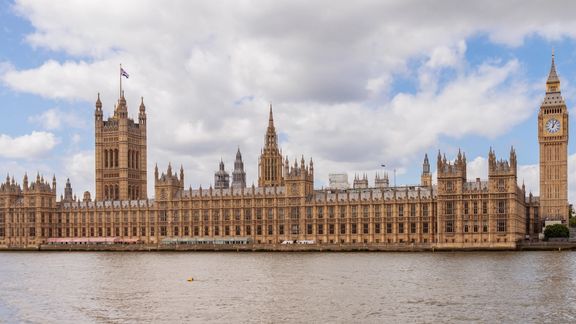
One of the UK’s leading MPs has claimed the country must break away from US and EU-led policy and take an independent approach against the Iranian regime.
Conservative MP Brendan Clarke-Smith told the House of Parliament this week: “Iran presents one of the most immediate threats to the UK’s national interest and domestic security.”
Clarke-Smith, who called for full proscription of Iran’s Revolutionary Guards Corp (IRGC), said more action must be taken against the regime as it gets closer to nuclear armament and continues its support of terror.
“The UK can play a decisive role here. Thanks to Brexit and our newly acquired autonomous sanctions capabilities, the UK has more room to act in this space than the EU,” he said.
Slamming the softly-softly Biden administration approach, he said separating Iran policy into different areas such as human rights abuses, the nuclear program, ballistic missiles and support for terrorism, is not working.
He said: “History has shown that those policy areas can only ever be dealt with as a whole, and it is my contention that the failed approach is no longer tenable, and that the UK should take the opportunity to pursue an independent Iran policy and steer our own ship.”
The British government has failed to ban the IRGC more than four months after MPs voted for it. The House of Commons unanimously passed a motion in January to urge the government to proscribe the IRGC as a terrorist group.
Although the vote was not binding, it put pressure on ministers to respond to violence against protesters in Iran by security forces controlled by the IRGC.
Clarke-Smith said that even sanctioning the IRGC in its entirety fails to adequately reflect the extent of the threat posed by the Islamic Republic’s brutal enforcers. "Reports suggest that the UK has come under pressure from the Biden Administration over the question of proscription, which jars with their active decision not to delist the organisation from their own proscription list. The UK Government must pay no heed to these overtures and instead put our national security interests first,” he urged MPs.
Defending the lack of proscription, The Minister of State for the Foreign, Commonwealth and Development Office, Andrew Mitchell, told the House of Commons: “We take very seriously the threatening behaviour of the Islamic Revolutionary Guard Corps. Not only have we sanctioned the organisation in its entirety, but we have sanctioned 29 individuals and entities affiliated with it since last October.
“That includes the Basij force—the arm of the IRGC that is mobilised to enforce brutal repression on the streets of Iran—and, most recently, four commanders under whose leadership IRGC forces have opened fire on arbitrarily detained and tortured protesters.”

In February, Iran International was forced to close its offices in London after continued state-backed threats to the team led to security officials saying they could no longer protect reporters and staff. Forced to move operations to Washington DC, the issue became one of the sticking points as to the UK’s refusal to crack down on Iranian threats on British soil.
At the same time, police and the security services claimed to have foiled at least 15 plots by Iran to either kidnap or kill British or UK-based individuals it considers “enemies of the regime” since January 2022.
The toll of attempted assassinations and abductions was made public hours after Iran International announced it had moved operations to the US. Just last month, Masih Alinejad, a leading Iranian dissident based in the US, was put under 24-hour police protection during a visit to the UK after the Metropolitan police received credible threats to her life.
Now, calls are being made to close a British charity run by the UK representative of Iran's Supreme Leader Ayatollah Ali Khamenei, after the aid watchdog removed its trustees over links to Iran.
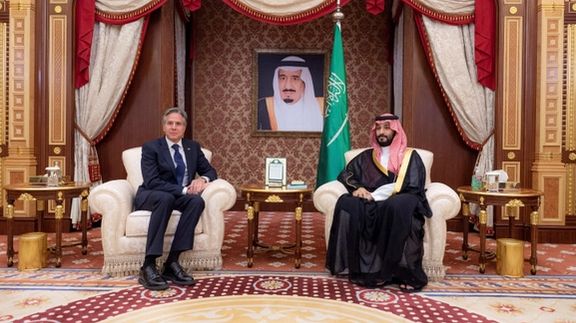
As US Secretary of State Antony Blinken is in Saudi Arabia for talks, Washington reiterated its commitment to respond to Iran’s aggression in regional waters.
Blinken, who arrived in Saudi Arabia late on Tuesday for a much-anticipated visit amid frayed ties due to deepening disagreements on everything from Iran policy to regional security issues, oil prices and human rights, met with Saudi Crown Prince Mohammed bin Salman on Wednesday.
According to a US official, the two had an "open, candid" conversation for an hour and forty minutes, covering topics including Israel, the conflict in Yemen, unrest in Sudan as well as Iran.
"They discussed the potential for normalization of relations with Israel and agreed to continue dialogue on the issue," the official said.
At a speech in Washington hours before departing for Saudi Arabia, Blinken said the United States had a "real national security interest" in advocating for normalizing Saudi-Israeli ties but cautioned about the time frame."We have no illusions that this can be done quickly or easily," Blinken said.
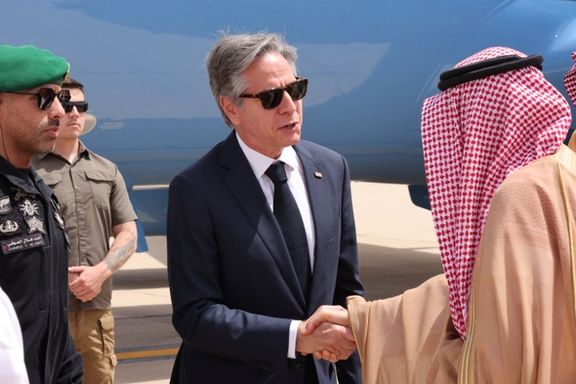
Although Riyadh gave its blessing to Persian Gulf neighbors United Arab Emirates and Bahrain establishing relations with Israel in 2020, it has not followed suit. In contrast, in April, Saudi Arabia restored ties with the Islamic Republic, a regional rival and Israel's archnemesis.
Two days after Blinken's visit, Riyadh will host a major Arab-Chinese investment conference. Blinken is also set to travel to China for talks in the coming weeks, in a visit intended by Washington to be a major step toward what President Joe Biden has called a "thaw" in Sino-American ties.
The visit came two days after US and UK navies acted when a merchant ship was being harassed by Iran’s Revolutionary Guard’s Navy fast-attack boats in the Strait of Hormuz, in a sign of a more forceful policy in the Persian Gulf.
Condemning this behavior, a State Department spokesperson told Iran International on Tuesday that the move was a “clear attempt to threaten and interfere with commercial shipping” in the Middle East.
Emphasizing that the United States is committed to supporting regional maritime security coalitions within the Middle East region, the spokesperson said Washington does not seek conflict or escalation with Iran. "We are committed to responding to Iranian aggression together with our global Allies and our partners in the Middle East region to ensure the freedom of navigation through the Strait of Hormuz and other vital waterways.” the official added.
Iran has hundreds of fast attack boats that for years have not only harassed civilian vessels but, on many occasions, have come dangerously close to US and other warships in a show of force. Over the past two years, Iran has now harassed,attacked or interfered with the navigational rights of 16 internationally flagged merchant vessels in regional waters.
The recent incident in the Strait of Hormuz took place against the backdrop of reports about the formation of a new naval alliance in the region with Iran being a main force.The US says it “defies reason” for Iran to be part of a regional naval alliance while the Islamic Republic is the main reason for maritime insecurity in the Persian Gulf region.
Iranian media claimed in recent days that a regional naval coalition is in the offing though this was not confirmed by any mentioned parties. On Saturday, Iran's navy commander officially announced that his country and Saudi Arabia, as well as the United Arab Emirates, Qatar and Bahrain, plan to form a naval alliance, that would include Iraq, India and Pakistan.
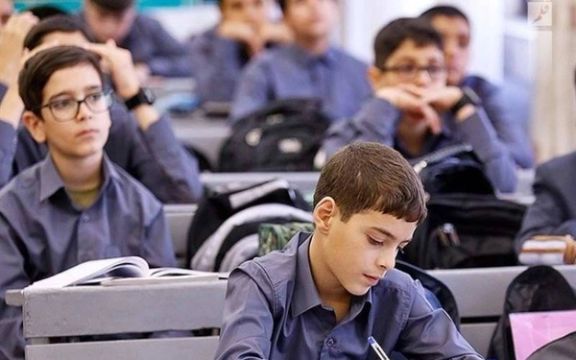
The emigration crisis in Iran has now reached school students who see no future for themselves in the country.
In a report on Wednesday, Etemad daily quoted a teacher as saying that the "students are disappointed."
According to her, the parents of a girl in year nine paid about $12,000 to enroll her in a school affiliated with a university in Toronto, Canada.
She said another reason for the migration of students is the law "urging them to pay thousands of dollars to release their bachelor's and master's degrees".
The government has stepped up pressures and restrictions on students and graduates. The health ministry in September increased the exit permit bond for medical, dental and pharmacy students to $5,000 per year.
Late in November, the parliament presented a proposal to ban students who participate in protests from traveling abroad for ten years. Recently, the Ministry of Science Research and Technology has also approved regulations that would increase the costs of receiving university degrees six to 10 times.
"Families say the amounts they will have to pay in the future to release the degrees, they can spend ... to send their children to study in other countries," said the teacher in the interview with Etemad.
The number of Iranians leaving the country has increased dramatically in recent years due to economic hardship and unemployment leaving a potential brain drain crisis looming.
However, the Iranian government, including the Ministry of Education, has not published any numbers on the migration of students abroad.
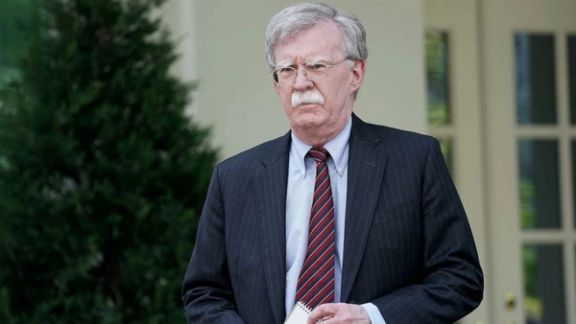
President Joe Biden’s policies on Iran and the Middle East are leading toward a “strategic failure”, former US national security adviser John Bolton says.
In an opinion article in the Wall Street Journal Wednesday, Bolton sharply rebuked Biden for pursuing the revival of the 2015 JCPOA nuclear deal, lax sanctions enforcement against Tehran, and his “apparent disdain for key Middle East allies.” He argued that Iran is overcoming a US policy of containment and Arab regional states, having lost confidence, are open to overtures by China and Russia.
Bolton also accused the administration of opposing an Israeli last resort attack on Iran’s nuclear installations to prevent the possible production of nuclear weapons, and in fact trying to prevent it.
He urged Biden to plan for a regime change in Iran, instead of making a deal that would release billions of dollars to the clerical regime. The former UN ambassador and national security advisor has long advocated that the only way to neutralize the threat posed by Iran is to change its anti-West regime.
At the same time, the Israeli Haaretz newspaper claimed that “major progress” has been achieved in contacts between Washington and Tehran for what appears to be an “interim deal”. In exchange for release of around $20 billion in frozen funds abroad, Iran would stop high-level uranium enrichment, the paper said.
The United States has been demanding that Iran stop its close military collaboration with Russia as a pre-condition for resuming the JCPOA talks. It is not clear that this would be part of an interim and limited agreement. Iran, which supplies weapons to Russia for its war in Ukraine, can use any released funds to accelerate its weapons production.